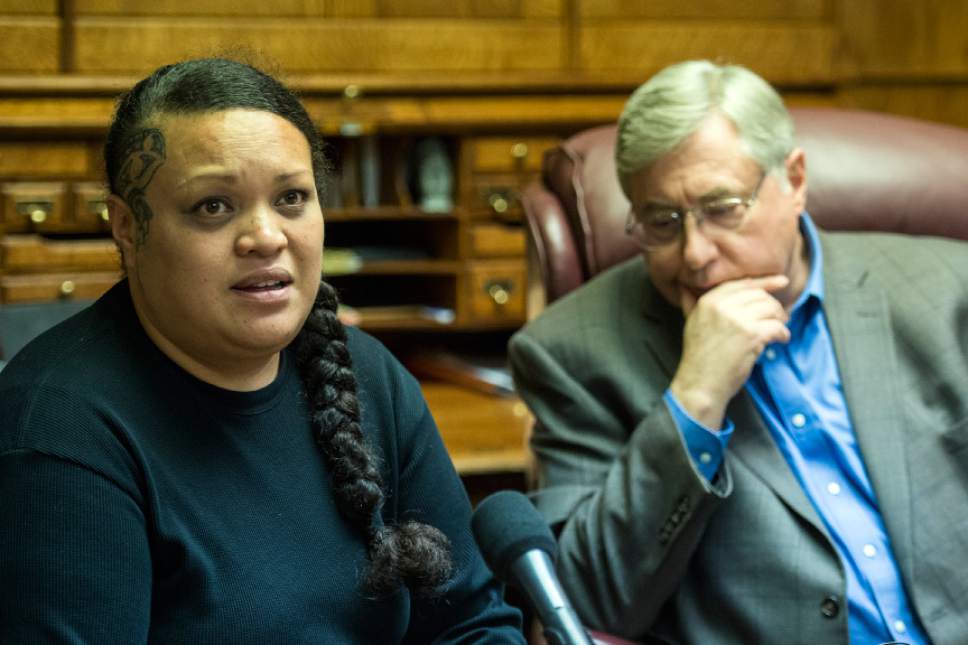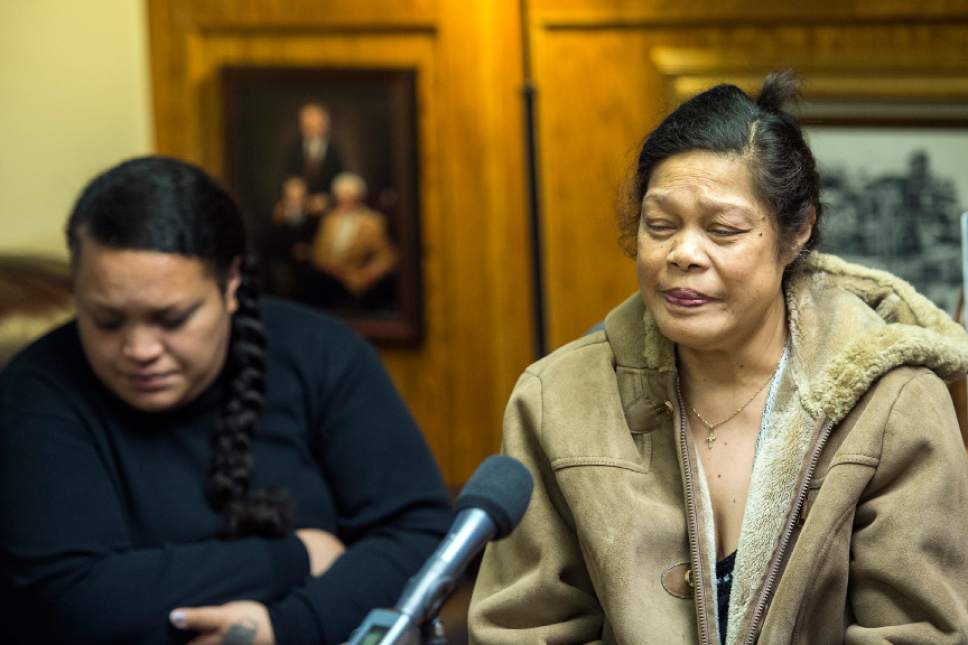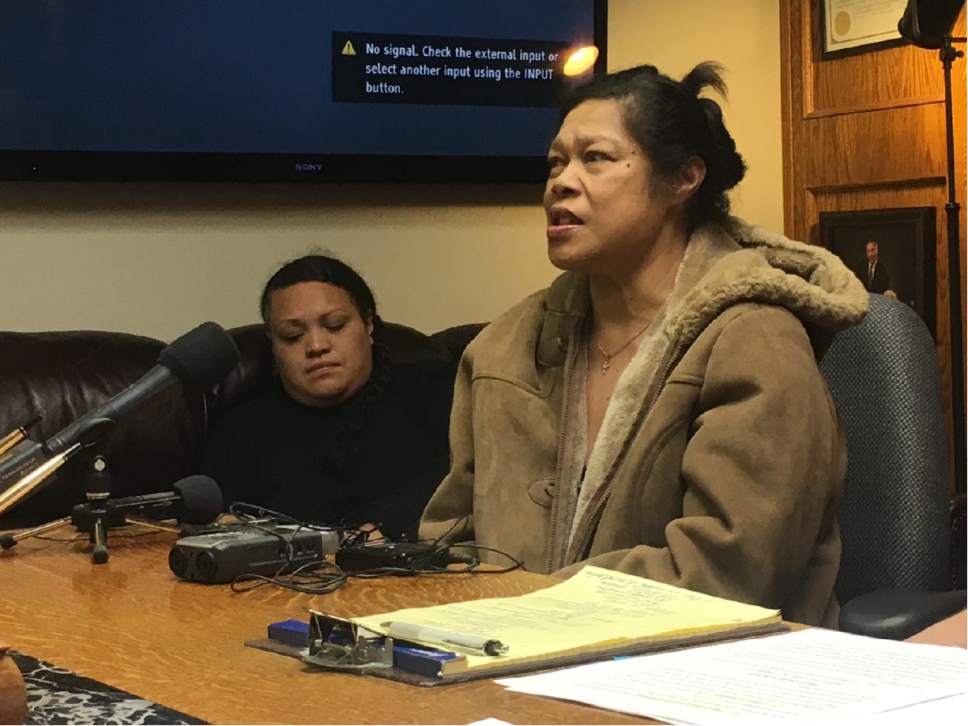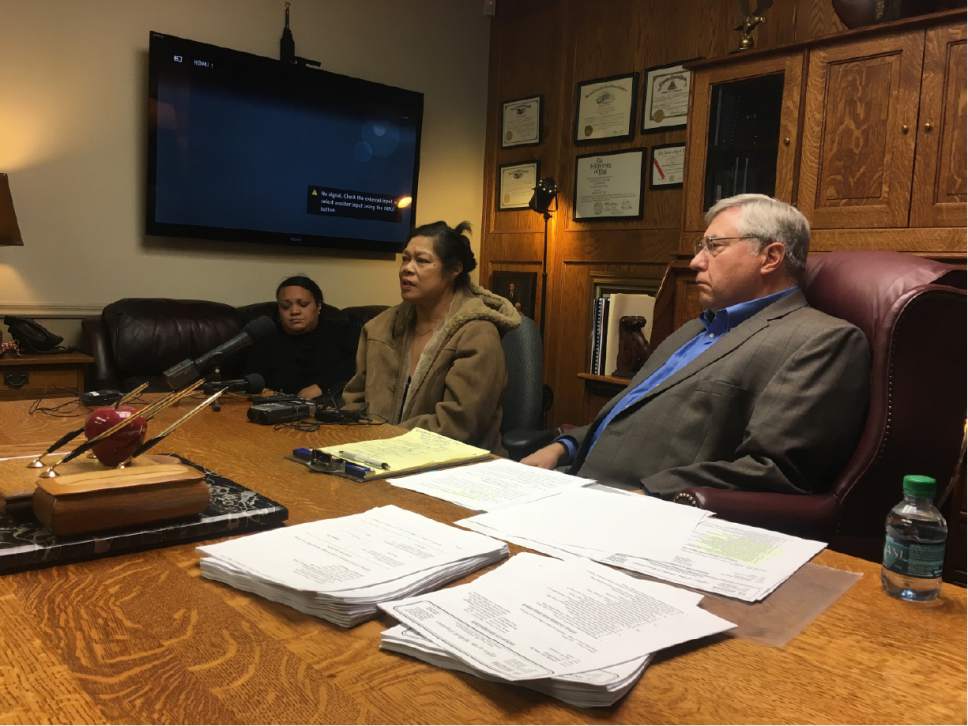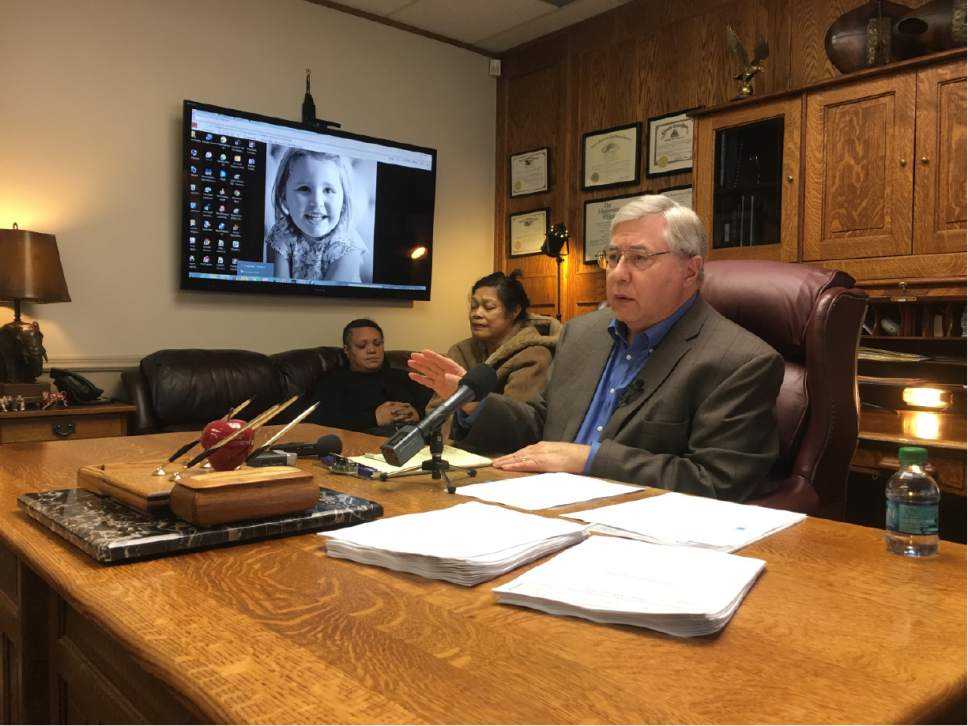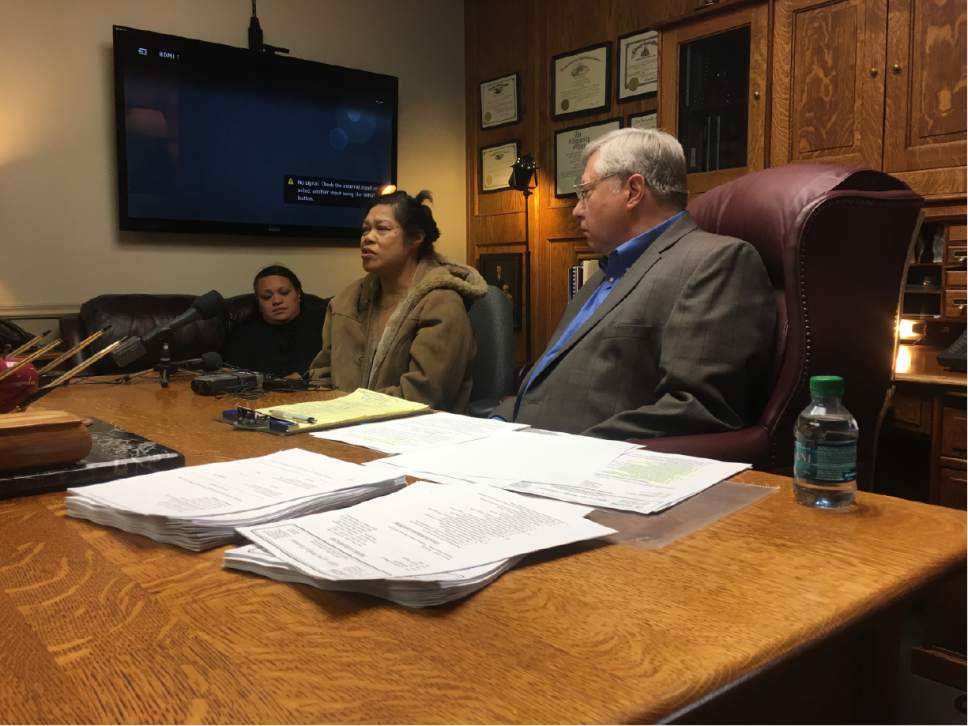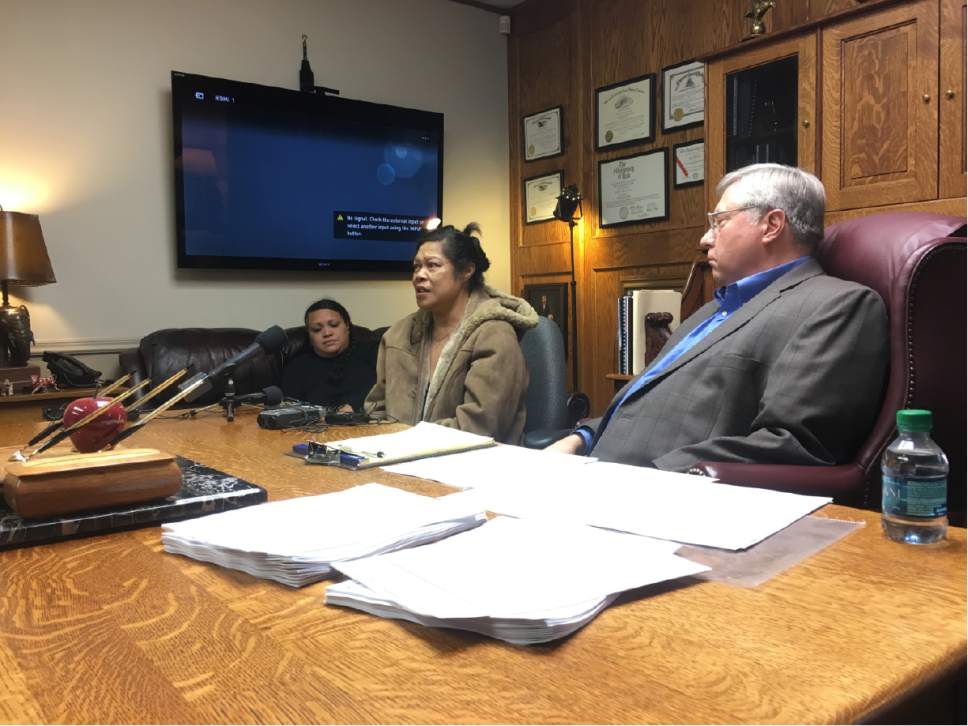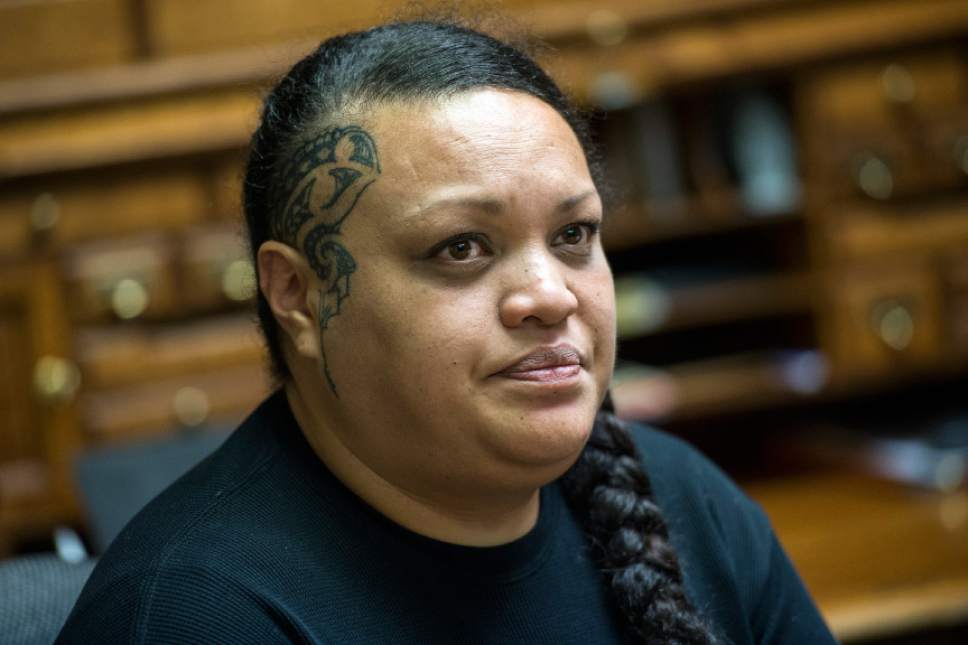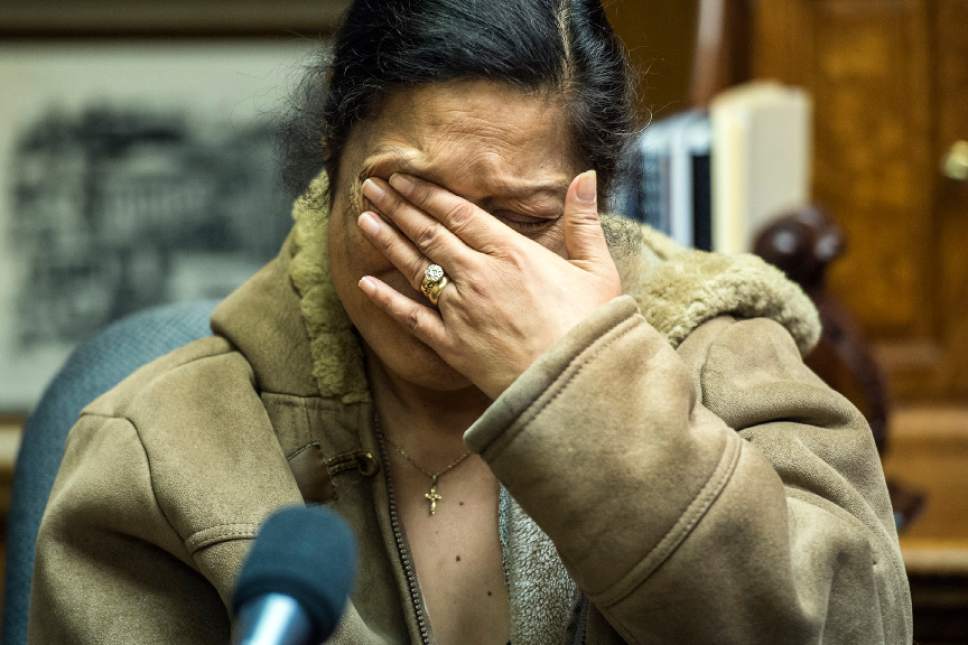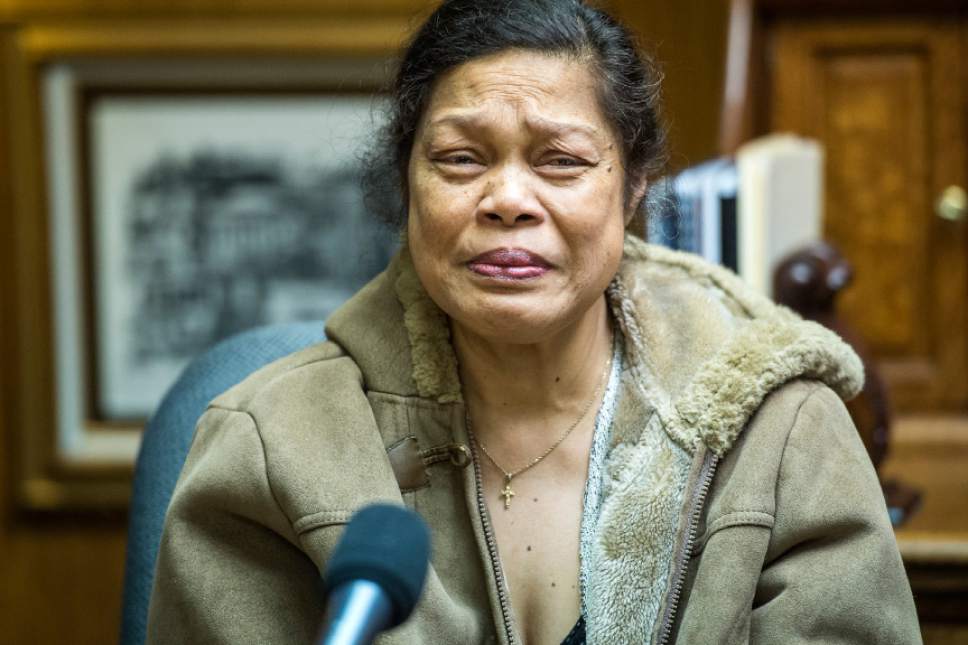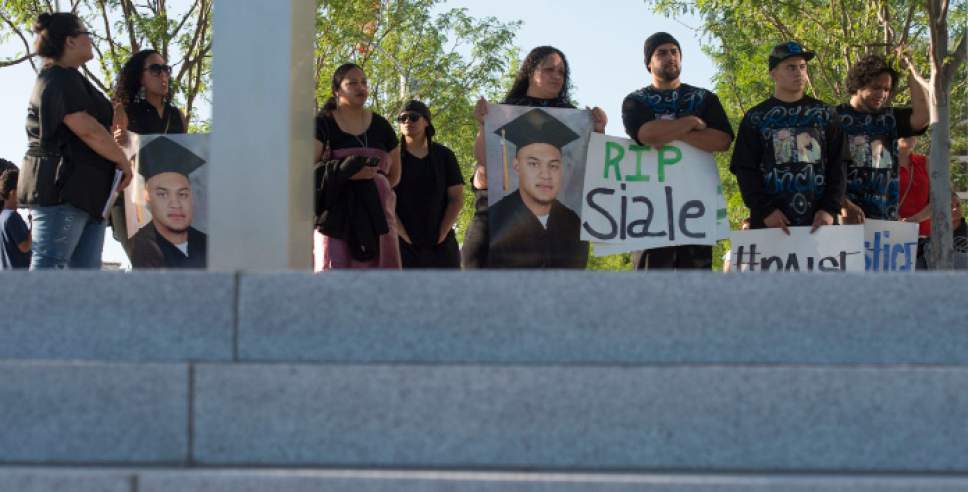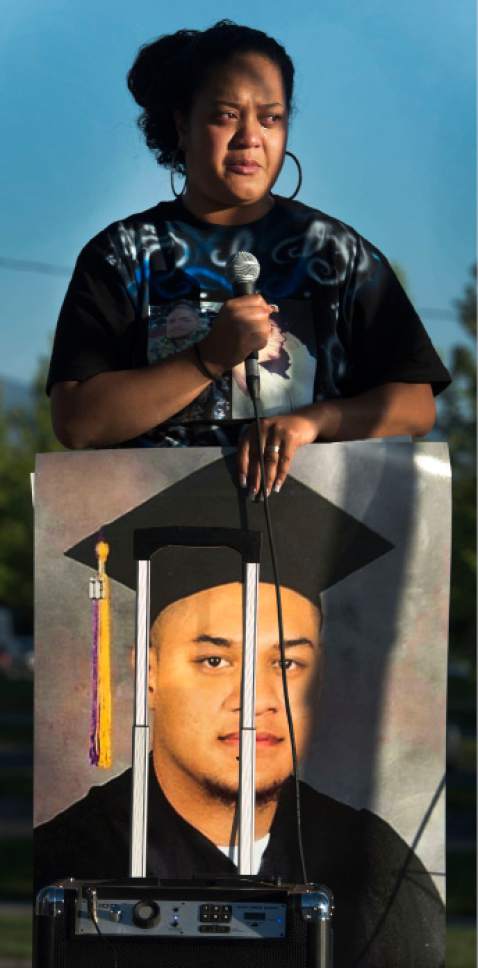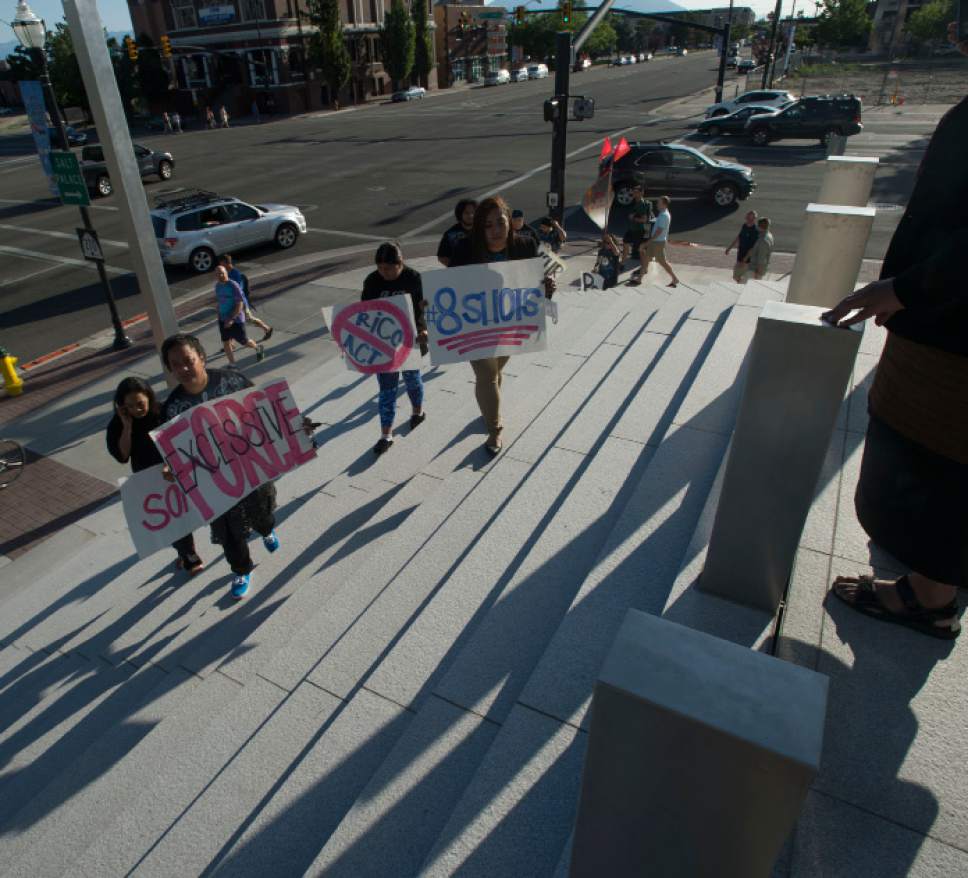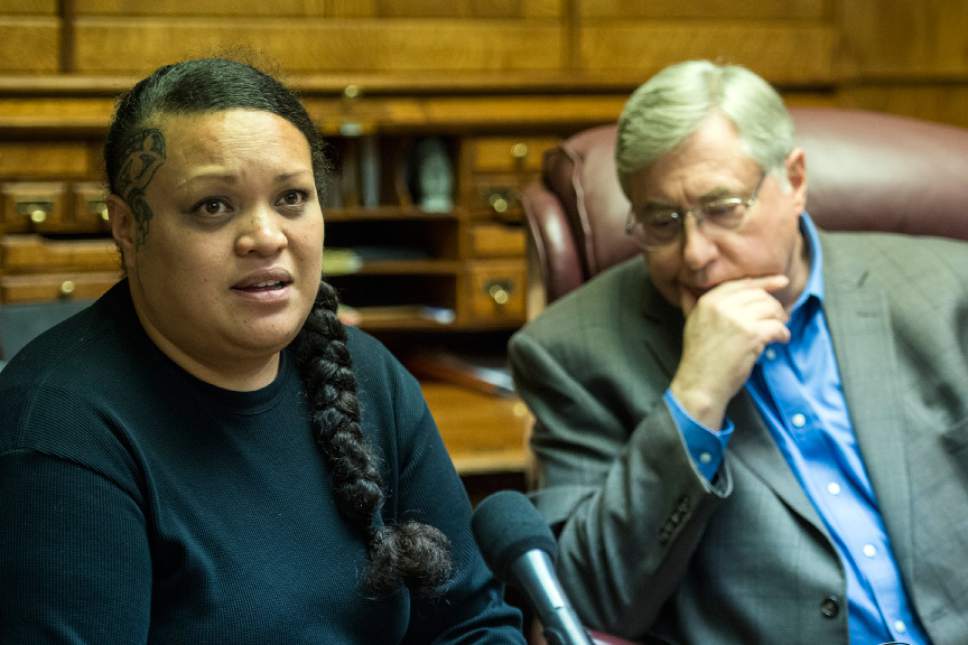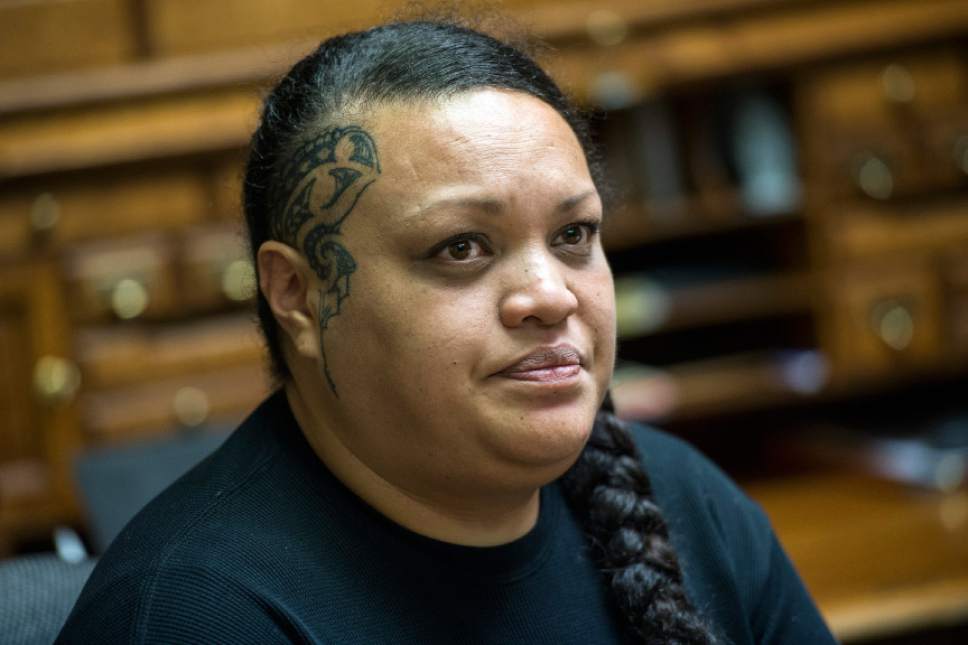This is an archived article that was published on sltrib.com in 2016, and information in the article may be outdated. It is provided only for personal research purposes and may not be reprinted.
Attorneys representing Utah's media entities are opposing the federal government's latest bid to keep secret a security video depicting the fatal courtroom shooting of a Utah man.
In September, Siale Angilau's parents filed a civil rights lawsuit against the federal government and the unidentified marshal who fired the deadly shots more than two years ago during a trial. In response, attorneys for the federal government filed a motion to dismiss and requested that a video depicting the shooting be filed with the court under seal.
That video has never been released publicly. Attorneys for the government say that releasing the video would cause a "significant security concern."
On Friday, media attorney David Reymann asked to intervene in the lawsuit, and argued that the video should not be filed under seal and the lawsuit should not be litigated in secret. He said the case still has "substantial public interest."
"Not only does it involve the use of lethal force by law enforcement officers, which alone situates it amidst a critical national dialogue regarding excessive force," Reymann wrote, "but also those events took place in a public courtroom during a public trial — extraordinary circumstances that underscore the need for public accountability of those involved."
Reymann said that since the April 21, 2014, shooting, conflicting accounts of what happened have emerged and the public has yet to see the security video documenting the shooting.
"What transpires in public courtrooms is the public's property," he wrote.
Angilau, along with 16 other alleged members and associates of the Tongan Crip Gang, was indicted on racketeering charges in May 2010. Prosecutors say the gang committed murders, robberies and assaults to bolster its Salt Lake Valley operations over two decades.
During the first day of Angilau's trial — held at the then-newly opened federal courthouse in downtown Salt Lake City — Vaiola Mataele Tenifa was testifying about how the Tongan Crip Gang operated and how members were inducted. Angilau, who was not restrained or in handcuffs, apparently jumped up from the defense table and lunged at Tenifa. Some witnesses in the courtroom say Angilau, 25, was holding a pen or pencil.
At that point, a marshal — not named by any federal agency, and identified in court documents as "Jane Doe" — fired at Angilau, likely hitting him in the arm. The marshal then fired another three shots, according to the lawsuit filed by the family, killing Angilau.
The family and their attorney, Robert Sykes, were shown courtroom video from the shooting in May 2015 (the version was pixelated to obscure faces). Their lawsuit relies, in part, on the footage, though they have not received responses to numerous requests to obtain a copy, Sykes has said.
Requests from The Salt Lake Tribune and other local news agencies have similarly been unanswered or denied.
Government attorneys say releasing the recording would jeopardize courtroom safety measures by showing the "positioning of security cameras within the courtroom and areas not covered by the camera view (blind spots), emergency evacuation procedures for judges and court staff, the positioning of court security personnel within the courtroom and the emergency response procedures of court security personnel entering" and exiting the courtroom.
Even a pixelated version of the video released to the public, they argue, would potentially expose courtroom layouts to a "person intent on engaging in criminal activity or mischief."
Additionally, the government fears revealing who was in the courtroom that day. The jurors, specifically, were selected anonymously and identified by numbers to protect their identities; many on the witness list, the motion argues, were not named in court documents because of "security concerns" related to the Tongan Crip Gang.
Reymann argued that these concerns were "unfounded," and can be remedied by pixelation.
In July 2014, the Department of Justice announced that the marshal was justified in shooting Angilau.


